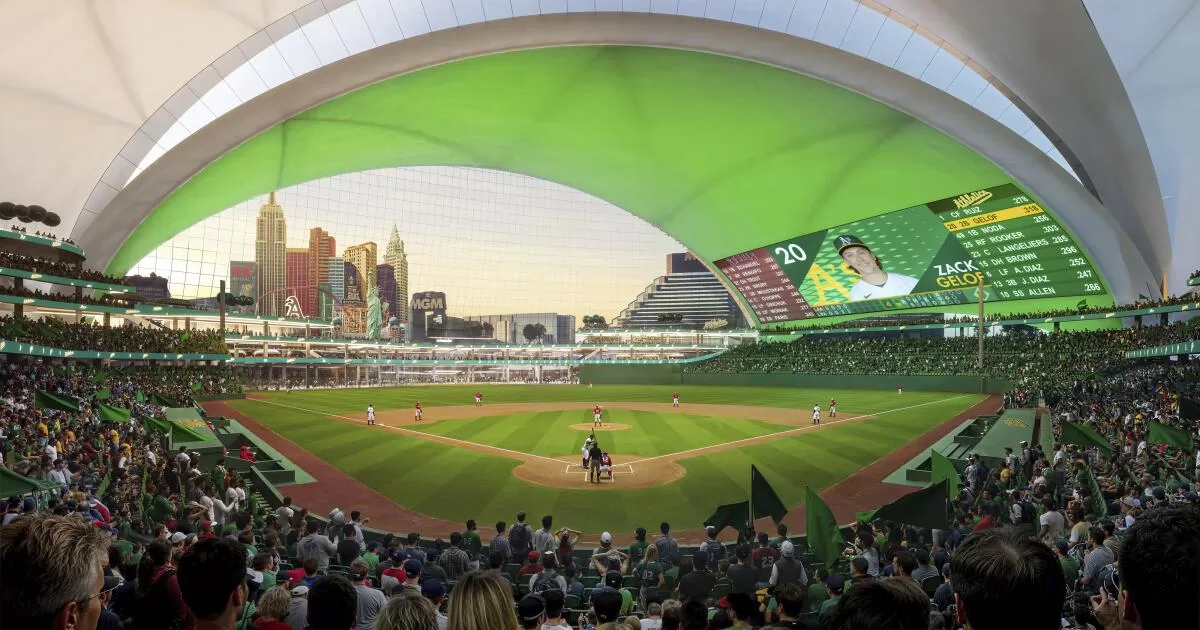The A’s have yet to reveal a plan to finance the balance of the estimated $1.5-billion construction cost, but they hope to put a shovel in the ground in the spring of 2025. A Nevada teachers’ union had hoped to put a referendum on the November 2024 ballot, asking voters whether to approve or reject the public funding.
“We are gratified that the court agreed with our arguments about the referendum’s legal flaws,” said Bradley Schrager, an attorney for a coalition that included the A’s. “All Nevadans have a right to participate in direct democracy, but they need to observe the laws that require properly informing the voters of a proposal.”
Such proposals can be increasingly challenging for teams. In Missouri last month, voters rejected a public funding measure that would have helped finance a new ballpark for the Kansas City Royals and a renovated stadium for the defending Super Bowl champion Kansas City Chiefs.
The Nevada union’s political action committee, called Schools over Stadiums, said it would continue to pursue litigation that could block some or all of the funding, citing alleged violations of the state constitution in the legislation that authorized the funds.
In a statement, Schools over Stadiums said it was “disappointed Nevada voters will not have their say in 2024.”
The committee also said it would try to put the referendum on the Nevada ballot in 2026, but a union spokesman did not reply to a question of whether a yes vote then might be symbolic if the A’s already had received the money by then. Schrager declined to comment on that issue.
In Monday’s ruling, the Nevada Supreme Court upheld a lower court decision that that the proposed petition should have included the full text of the law in question and should have provided a clearer description of the effect of passage so that voters “can understand what the law is now and what the law will be should they approve or disapprove.” According to the ruling, a statement that “up to $380 million in taxpayer dollars” would be used did not specify that some of those funds would be “existing state funds” and some would be tax revenues generated by the ballpark and surrounding attractions.
In a dissenting opinion, Justice Kristina Pickering noted the law in question includes “66 single-spaced pages” and the description of effect is limited by rule to 200 words. Pickering said the petition provided the full text of the relevant sections of the law that would be affected and said the proposed description properly conveyed that “if approved, the stadium referendum would withdraw state credit and financial support for the stadium project, which in turn could prevent the stadium from being built.”
